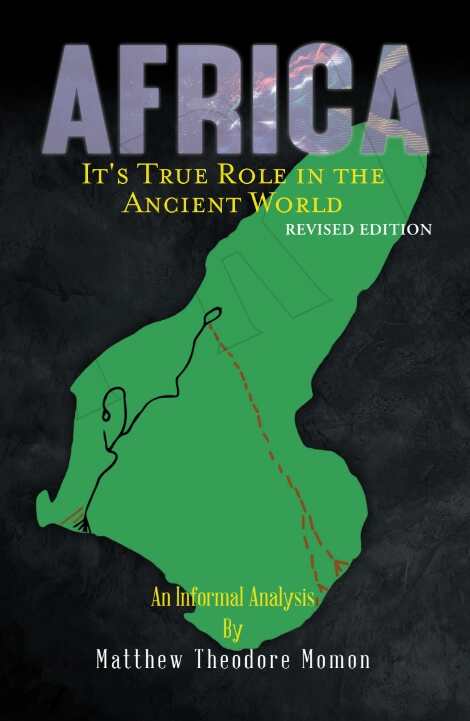
Africa
It's True Role in the Ancient World
Taking the form of a dialogue between the past and the present, the social science inquiry Africa addresses topics including education, equality, ethnicity and race, epistemology, and history.
An impassioned quest to uncover the hidden mysteries of ancient history, Matthew Theodore Momon’s text Africa compiles lists of the historical contributions of Africans dating back to antiquity.
An alternative account of ancient history, this book posits that most known intellectual contributions and technological advancements have been misattributed to protect ideas of European supremacy and to persecute African psyches. Its inquiry is as personal as it is political, and it is narrated with a tone of radical urgency: “African Americans have made significant contributions to science despite the absence of at least two basic conditions for scientific work; #1 Freedom from full-time pressures for personal survival and #2 A stimulating cultural environment.” It continues, “If the African ever has questions about himself, he has to do his own research.” To correct the record, it reckons with historiography, scrutinizing the factors influencing how history was written and who wrote it.
However, the book’s claims are not supported well enough to make it seem a credible source on ancient history. Its fleeting and casual mention of Egyptologists’ schools of thought about historical timelines in ancient Africa is as close as it comes to citing a scholastic source; its research methodologies remain murky. It has no bibliography, but includes a few rogue citations. Its data is often attributed to decades-old documentaries on the Discovery Channel. Furthermore, its analyses are rendered in frenzied mathematical equations with figures of unknown origins. It includes oversimplified deductions that, sans sources, appear tainted by confirmation bias. Alongside errors in grammar and indecipherable illustrations of maps without legends and figures without subtext, it submerges its message beneath conjecture.
The book often blurs the historical record, marrying facts with Bible verses and proffering a pseudospeculative archive of Africa’s history as though the continent existed in a vacuum. The rigidity of its ideas is a constant throughout, and the gaps, nuances, and ambiguity inherent to conducting research into the ancient past are brushed past. In the end, the book does not as much correct the script as flip it in support of the idea of African supremacy. Its arguments also fall prey to tribalist perspectives on race, rendering it contentious.
A piquing historical inquiry that proposes a paradigm shift, Africa is an enthusiastic and impassioned thought experiment.
Reviewed by
Xenia Dunford
Disclosure: This article is not an endorsement, but a review. The publisher of this book provided free copies of the book and paid a small fee to have their book reviewed by a professional reviewer. Foreword Reviews and Clarion Reviews make no guarantee that the publisher will receive a positive review. Foreword Magazine, Inc. is disclosing this in accordance with the Federal Trade Commission’s 16 CFR, Part 255.
